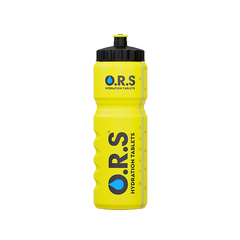Fulfil Your True Potential With A Marathon Nutrition Plan

Running a marathon places extreme demands on the body, and it’s essential to make sure that it has the right fuel sources to get you safely over the finish line and support your recovery. Here is some useful information about maintaining the optimum nutrition,hydration and electrolyte levels before, during and after a big race.
What to eat on regular training days
The body uses two main sources of energy in the form of carbohydrates and fats. Carbs provide a short-term boost of energy, while unsaturated fats are an important fuel source for low-intensity exercise over long periods.
On regular training days when you will be exercising for up to two hours, aim to eat a serving of low-GI carbs for breakfast and lunch, as these provide a more sustainable release of energy and will keep you feeling fuller for longer. Examples of low-GI carbs (a glycemic index of less than 55) include wholewheat pasta, oats, lentils, beans, and soy products.
High GI carbs such as potatoes, white bread, and white rice tend to quickly elevate your glucose levels followed by a sharp crash, so these should be kept to a minimum. Include a serving of protein with each meal, such as lean meat or fish; eggs, or low-fat dairy.
Examples of healthy fats to include in your diet are found in olive oil, flaxseed oil, nuts and seeds, fatty fish such as salmon and sardines, and avocados.
What to eat on intense training or race days
When you are going to be making extra demands on your body with a longer session, you should boost your intake of carbohydrates to provide an immediate energy source. In the morning, consider eating porridge or buckwheat pancakes for breakfast. You can also top up with snacks such as nuts and seeds, granola bars, or bananas.
Before a race, avoid eating foods that might irritate your digestive tract, such as hot spicy dishes or high-fibre or very fatty foods. Gradually increase your intake of carbs three to four days prior to the race, rather than suddenly carb-loading the day before.
Restrict your diet to familiar foods that you know you can tolerate well, because the last thing you want to be dealing with on race day is gastrointestinal troubles. Eat about three to four hours before the start of the race, and plan to refuel according to your needs with gels or chews during the race if necessary.
Optimise your hydration levels
Maintaining adequate hydration levels is crucial not just to optimise your performance, but to prevent serious consequences from dehydration such as dizzy spells, confusion, fainting, or even seizures. The amount you need to drink will depend to some extent on your body weight, typical perspiration levels, the weather conditions and the pace you are running at.
Use your training sessions to hone your individual hydration plan for the big day. If you do tend to sweat intensely during runs, you may want to consider taking an oral electrolyte tablet. This is because we lose electrolytes (essential vitamins and minerals such as sodium, potassium, and magnesium) as well as fluids when we sweat.
The body will lose more water than we take on, so it’s important to gauge your sweat rates during training sessions so you can plan how much to drink during the race. You can do this by weighing yourself when minimally dressed before and after a run, minus any fluid you consumed in between. One litre of sweat is equivalent to about 1 kg of body weight.
Electrolytes also help the body to absorb and retain fluid, so they are particularly helpful during a long race. There are various products that contain electrolytes such as energy drinks and gels, but beware as these can contain unhelpful chemicals and sugar.
Find out what products will be available at the drinking stations, and if necessary arrange for a helper to supply you with your own choice of drink along the route.
What eat after a marathon
It’s just as important to eat well after a marathon to help your body recover and repair damaged tissues. Replenish your fluid levels within the first 30 minutes after finishing your race to guard against dehydration. In the evening, have a high protein meal such as chicken or lamb curry with brown rice or sweet potatoes.
For an extra snack, try a fruit smoothie or frozen yoghurt with blueberries. Above all, listen to your body and learn to recognise the signs and signals it is sending you.

